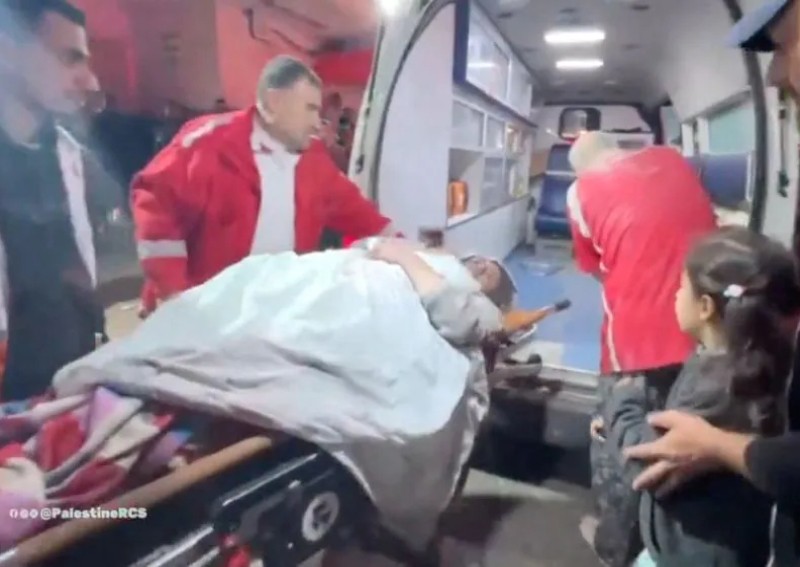Exhausted Gaza medics struggle to help casualties from Israeli bombardment


GAZA/LONDON — Injured Palestinians pour into al-Aqsa Hospital in Deir al-Balah in the central Gaza Strip as exhausted medics try to help casualties from Israel's ground assault and bombardment.
Doctor Khaled Abu Awaimer said the hospital was running out of medical supplies and that many of the remaining medics had themselves been displaced already and feared coming under attack again and having to flee once more.
"We have cases we can't do anything about. We have nothing to offer so we feel completely helpless. This is very sad and bad to be honest," he said in a video obtained by Reuters.
Israel's stated objective in Gaza is to eradicate Hamas, the militant group that stormed across the border on Oct 7, killing more than 1,200 people, mostly civilians, and seizing more than 240 hostages.
The assault on Gaza has killed more than 23,400 people according to health authorities in the tiny, crowded, Hamas-run enclave and driven most people from their homes.
The fate of the strip's hospitals and plight of its medics operating under bombardment, with flickering electricity and water supply and inadequate medical stocks, has prompted UN fears of a collapse in the health system.
As Abu Awaimer spoke, dozens of people milled around a busy hospital area, some pulling stretchers as medics prepared bandages. He said the hospital surroundings had recently been hit and ambulances destroyed.
On Wednesday the Palestinian Red Crescent Society said Israel's military had targeted one of its ambulances in Deir al-Balah, killing four medical workers and two injured people being transported inside.
Israel's military did not comment on the incident. It has previously accused Hamas of operating out of hospitals and ambulances, something the militant group has denied.
On one bed, a patient lay with an oxygen mask over the face, blood pooling on the floor below. In another place, an injured man sat on the floor as pink, bloody water washed out of a room next to him.
Many of the medics working at al-Aqsa had already fled other hospitals further north in Gaza in the face of Israel's ground assault. Now they feared the same scenario again, he said, as bombardment in the centre of the enclave pushed people south.
British doctor James Smith, part of a volunteer mission organised by UK-based charity Medical Aid for Palestinians (MAP) that worked at al-Aqsa hospital from late December until being forced to evacuate last weekend, said patients at the hospital had the most serious conflict trauma injuries he or foreign medical colleagues had ever seen.
[[nid:665954]]
"We would see mass casualty incident after mass casualty incident every single day," he said, describing al-Aqsa as the only functioning hospital in the area.
Hundreds of people would arrive each day, most of them physically injured but many also in acute distress, some sobbing hysterically and hyperventilating, he said.
Doctors and nurses were working 24-hour shifts, treating patients on the floor for a lack of beds, there was no room to organise a triage system and medics would be working to save one patient while another lay dying in the same room, he said.
He described a girl of 11 or 12 years old brought in one day after an explosion with her entire face and most of the upper half of her body burned black, entirely distorting her features, contracting her arms so her hands pointed to the ceiling.
The girl could not survive and was alone apart from the medics trying to relieve her pain, he said.
Beside the risk of injuries from bombardment, the lack of food, clean water and electricity and mass displacement of Gazans to tent cities is also affecting health.
Jamila Abo Amsha, a woman living with her children in a tent in Rafah after fleeing the bombardment around their home in northern Gaza, said she had been unable to wash her children's clothes or give them a shower for 10 days.
"The entire Gaza Strip population is dying and the world is watching," she said.
ALSO READ: Medics, patients flee Gaza's remaining hospitals as fighting intensifies: WHO